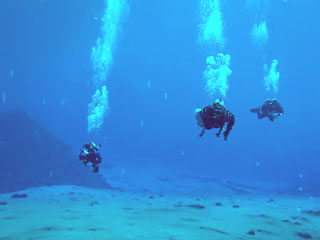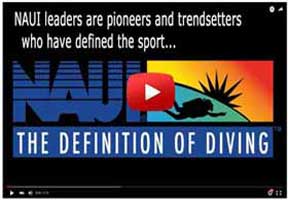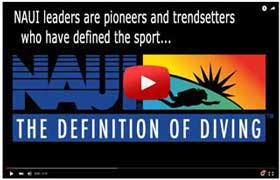TDI Advanced Nitrox Diver
Are you looking to expand your dive time? Maybe you’re a scientific diver or photographer looking to stay in the water a little longer? The TDI Advanced Nitrox Course qualifies divers to use enriched air nitrox from 21% through 100% oxygen within your current certification level to a maximum depth of 130 feet during dives that do not require staged decompression.
Who this course is for
• The certified nitrox diver looking to expand their understanding of nitrox mixtures containing more than 40% oxygen
• The certified nitrox diver looking to expand their in-water skills
• The certified diver who has interest in moving forward with technical diving education
Course prerequisites
• Minimum age 18
• Minimum certification of Scuba Diver (Open Water Diver)
• Minimum certification of Nitrox Diver
• Minimum certification of Night/Limited Visibility diver
• Minimum certification of Drysuit Diver (25 logged dives in a drysuit)
• Proof of 50 logged open water dives
What you can expect to learn
Advanced Nitrox picks up where nitrox leaves off and offers a more in depth look at diving with nitrox including:
• Physics and physiology relating to diving with gas mixes containing more than 40% oxygen
• Gas planning, dive tables, dive computers, oxygen limitations, nitrogen limitations
• Equipment considerations, cylinder labeling, analyzing nitrox mixtures, gas blending procedures, and oxygen service ratings for using gases with more than 40% oxygen
Some of the skills you will complete in this course include
• Demonstrate buoyancy control; ability to hover at fixed position in water column without moving hands or feet
• Show good awareness of buddy and other team members through communication, proximity, and team oriented dive practices
• Demonstrate the ability to manage free flow from primary regulator in controlled fashion, shut down cycle, and switch to back up regulator
• Conduct appropriate safety stop while maintaining neutral buoyancy
• Demonstrate the ability to share air with buddy as both recipient and donor in a controlled manner while maintaining position in the water column
• Demonstrate correct body position; appropriate trim, such as horizontal/streamlined when moving forward
• Demonstrate proper stress analysis with self and dive buddy
What’s in it for you?
Ability to dive using 21% through 100% oxygen provided:
• The diving activities approximate those of training
• The areas of activities approximate those of training
• Environmental conditions approximate those of training
• Ability to enroll in TDI Decompression Procedures, TDI Semi-Closed Rebreather courses, TDI Closed Circuit rebreather courses
TDI Decompression Procedures Diver
Are you finding your no-decompression limits a limiting factor to dives? Do you have to ascend sooner than you would like? As sport divers, planned decompression is not something that we do or have been taught. The TDI Decompression Procedures Course prepares you for planned staged decompression diving. With a maximum operating depth of 150 feet, this course is your first step beyond the normal sport diving limits. The TDI Decompression Procedures Course combined with the TDI Advanced Nitrox course form the foundation of all other technical courses. After these two courses and some additional experience, the stage has been set for you to move onto additional technical levels.
Who this course is for
• The certified Advanced Diver looking to expand their knowledge of decompression theory and diving techniques
• The certified Advanced Diver who is interested in extending their bottom time
• The certified Advanced Diver who has interest in moving forward with technical diving education
Course prerequisites
• Minimum age 18
• Minimum certification of Scuba Diver (Open Water Diver)
• Minimum certification of Night/Limited Visibility diver
• Minimum certification of Drysuit Diver (25 logged dives in a drysuit)
• Minimum certification of Advanced Nitrox
• Proof of 50 logged open water dives
What you can expect to learn
Decompression dive planning including:
• Decompression gas choices
• Tables vs. personal dive computers
• Emergency and contingency planning
• Decompression diving procedures
• SMB/lift bag deployment
• Emergency procedures
• Equipment considerations
• Cylinder labeling
• Analyzing nitrox mixtures
• Gas blending procedures
• Team awareness and communication
• Gas switching
• Pre-dive checks and drills
• Equipment selection
• Stress analysis and mitigation
• Following a decompression schedule
• Proper trim, buoyancy and finning techniques
What’s in it for you?
Ability to conduct decompression diving activities without direct supervision provided:
• The diving activities approximate to training
• The areas of activities approximate to training
• Environmental conditions approximate to training
• Ability to enroll in TDI Advanced Wreck and TDI Trimix courses







































